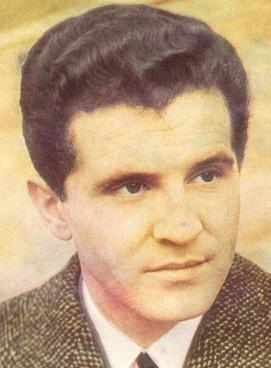Safet Isović facts for kids
Quick facts for kids
Safet Isović
|
|
|---|---|

Isović in 1965
|
|
| Born | 6 January 1936 Bileća, Kingdom of Yugoslavia
|
| Died | 2 September 2007 (aged 71) |
| Occupation |
|
| Years active | 1956–2007 |
| Musical career | |
| Genres |
|
| Instruments |
|
| Associated acts |
|
Safet Isović (born January 6, 1936 – died September 2, 2007) was a famous singer from Bosnia and Herzegovina. He was best known for singing sevdalinka, which is a traditional type of Bosnian music.
Early Life
Safet Isović was born in Bileća, a town in the Herzegovina region of what is now Bosnia and Herzegovina. At that time, it was part of the Kingdom of Yugoslavia. His family was Bosniak. Safet was one of three children born to Ahmet and Ermina Isović. He had a brother named Fehim and a sister named Fehma.
When Safet was just five years old in 1941, his family had to leave their home. This happened because Nazi Germany invaded Yugoslavia. They became refugees and moved to Banja Luka, where Safet went to elementary school. After the war ended, his family returned to Bileća. As he grew up, Safet's family lived in several different cities across Yugoslavia, including Bileća, Banja Luka, Trebinje, and Slavonski Brod.
Music Career
After finishing high school, Safet wanted to go to college in Zagreb. However, his parents wanted him to study law. So, in 1955, he moved to Sarajevo and started law school.
While studying in Sarajevo, his friends encouraged him to try out for a student music group called “Slobodan Princip Seljo.” He did very well at the audition. Soon after joining this group, his friends also convinced him to audition for Radio Sarajevo. He didn't pass the first time, but he tried again and succeeded! For the next year, he worked with music teachers. He practiced singing and learned to play the piano. After a year of hard work, he was invited to record two songs. These songs were released on April 6, 1957.
Safet Isović held his first solo concert on March 19, 1963, in Belgrade. He was the only singer from the former Yugoslavia who ever performed at the famous Sydney Opera House in Australia.
During his long career, which lasted over 50 years, Safet sang many traditional sevdalinka and Bosnian folk songs. One of his well-known songs was Moj dilbere.
Safet Isović won many awards and performed at big music festivals across the former Yugoslavia. His music helped to bring back and popularize the sevdalinka style. He won the Golden Microphone award in Yugoslavia. He also received 35 silver and gold record awards from different regions. Another famous sevdalinka singer, Silvana Armenulić, once said in a radio interview that she loved his music and called him her "darling."
Later Life and Public Role
Safet Isović was very proud of his Bosniak heritage and supported his people. He was one of the people who signed the document to start the SDA political party. Later, he served as a representative for this party in the Assembly of Bosnia and Herzegovina. This meant he helped make decisions for the country.
In the summer of 1992, during the Bosnian War, Safet was hurt. A bomb hit his apartment in Sarajevo. This happened after Yugoslavia began to break apart. During the wars in the 1990s, Safet became a refugee for the second time in his life. He lived in Zagreb, Croatia, until the Bosnian War ended. He spent the last ten years of his life back in Sarajevo.
Passing Away
Safet Isović passed away on September 2, 2007, in Sarajevo. He was buried the next day at Ali Pasha's Mosque. Many people across the country were very sad when he died. At a special memorial service held at the National Theatre of Bosnia and Herzegovina, singer Beba Selimović called him the "Father of the Sevdalinka." The Minister of Culture and Sport, Emir Hadžihafizbegović, said that Safet Isović did great things both when he spoke and when he sang. Ivica Šarić from the Sarajevo Opera said that the world had lost the best singer of sevdalinka.
 | May Edward Chinn |
 | Rebecca Cole |
 | Alexa Canady |
 | Dorothy Lavinia Brown |

